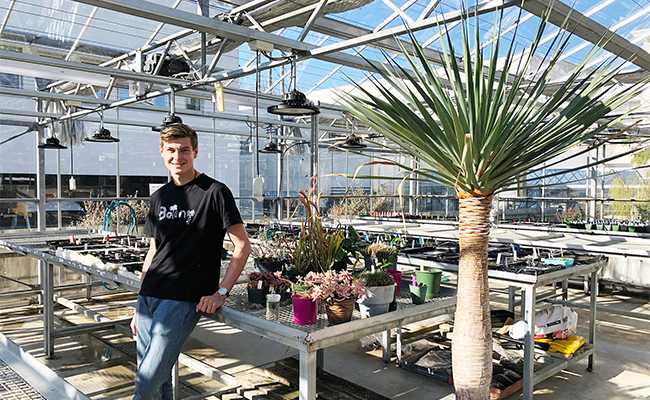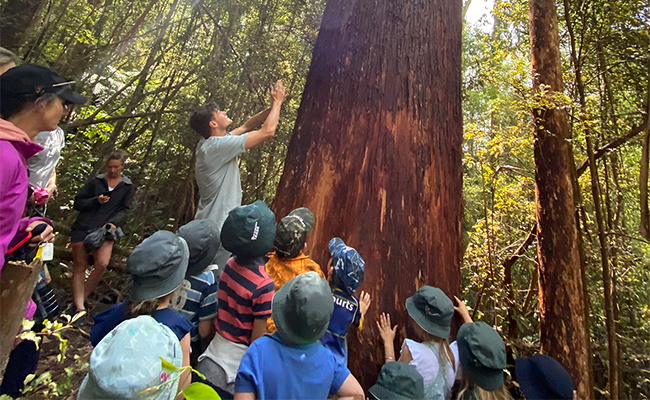Thursday 12 May 2022 11:43am

Taylor Davies-Colley will graduate this weekend with a Master of Science in Botany.
Taylor Davies-Colley (Te hikitu, Ngāpuhi) has become a familiar face for hundreds of tamariki through his roles in conservation and environmental education.
Since arriving to study at Otago Taylor has embraced a myriad of opportunities offered by Dunedin and its natural environment, and this weekend he is celebrating his graduation with a Master of Science in Botany.
“Dunedin is such a fantastic place,” Taylor says. “There aren’t too many places in the world where albatross are just down the road from where I live and sea lions visit my local beach.”
On his upbringing in Northland, Taylor reflects there was no limit of inspiration for his passion for the natural world surrounded by Kauri forest, gumlands, giant sand dunes and stunning beaches.
“But Dunedin has amazing places like Orokonui Ecosanctuary, Otago Museum, the Albatross Centre and Marine Science Studies Centre at Portobello. I think about myself as a young person and these places would have blown my mind.”
Taylor’s first interaction with educating tamariki was during a Wild Dunedin event in the Botanic Garden, connecting his natural ability to communicate and educate and leading to part-time education work with Orokonui Ecosanctuary.
The scale of his involvement in other initiatives grew, including joining the committee of Wild Dunedin and taking a leadership role in the city’s Town Belt Kaitiaki education programme which works with rangatahi to value the mauri (life force) of the Town Belt and learn to sustain and care for the environment.
“Kids are so interested and curious about the world, and not only are we providing these amazing formative experiences for them, but also preparing them to think about how to address challenges the natural world is facing.”

Taylor is enjoying working with tamariki, teaching them about the environment.
Taylor’s postgraduate research focused on a rare species of carnivorous plant called a bladderwort that lives in northern wetlands and traps prey in an incredible nine milliseconds. For a speed comparison, consider that a human blink takes between 300–400 milliseconds. These plants live in complex wetland environments with multiple human-influenced stressors such as weeds, nutrients and silt.
“These systems are unable to cope with all these stressors, which shifted my thinking that to effect positive environmental change requires regulatory change in conjunction with community and cultural shifts in thinking.”
Not sitting still on the issue, Taylor’s ongoing community education work is supported by his more regulatory-focused role on the local Conservation Board. In addition to his now permanent role at Orokonui Ecosanctuary, Taylor has also taken on an Ambassador for Trees that Count.
“The main goal of Trees that Count is to raise the profile of native trees and get people interested in planting more in their backyard. I love trees so this is pretty cool!”
Taylor’s passion for trees and plants has been firmly secured during his time in Botany, in which he relished the personal culture and community of the small department.
“The very cool thing about the department is knowing what everyone is up to, and that we are all connected and united by our interest and love of plants!”
Taylor says the opportunities provided through Botany and the wider Dunedin area have created a great environment and culture supportive of giving young people a go.
“We have a big concentration of wildlife experts and enthusiasts here who are motivated to make a difference, and it’s the perfect place for me to be right now and contribute to that environmental goal.”
Kōrero by Guy Frederick, Sciences Communications Adviser